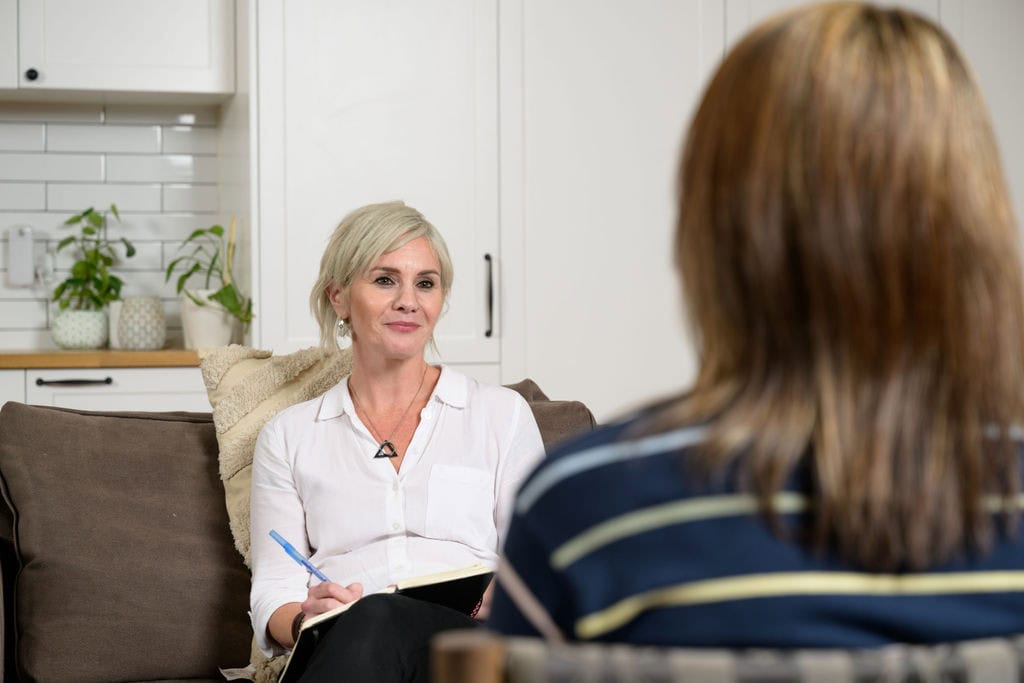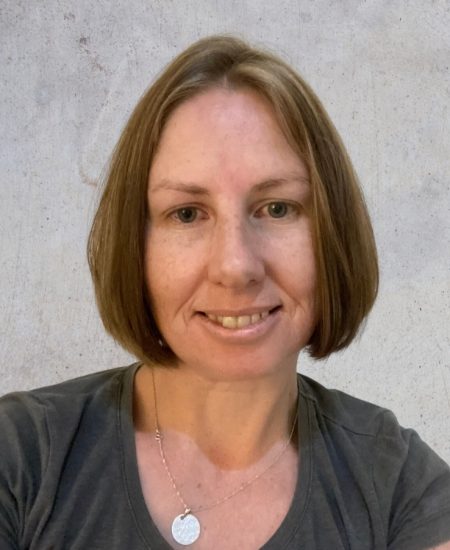Many people wonder about the diagnosis process and what it involves. The path to an ADHD diagnosis requires careful selection of the treating professional to ensure they are up to date with the latest research and can provide an affirming and evidence-based assessment in the field of neurodivergent health.
Understanding ADHD Symptoms Before Diagnosis
Getting an ADHD diagnosis starts with understanding the core symptoms and the variety of ways it can affect wellbeing, stress, function, learning and relationships.
Inattention, hyperactivity and impulsivity explained
ADHD symptoms: ADHD has three subtypes:
- Inattentive type
- Hyperactive / Impulsive type
- Combined type (both inattentive & hyperactive/ impulsive traits) – the most common presentation.
ADHD presents along a continuum of severity. There can be vast differences between how one person with ADHD may appear and behave compared to another in relation to the mix of traits and their relative severity.
Inattention shows up as trouble focusing on tasks or activities. People with inattentive symptoms often:
- Have difficulty with getting (and staying) organised or keeping to a routine;
- overlook or not give close attention to details;
- find they are distracted by internal thoughts or external activity;
- appear they aren’t listening;
- have difficulty following tasks through to completion / rely on deadlines for completion;
- avoid or delay tasks experienced as difficult or boring (procrastination)
- constantly misplace items or have rigid systems to ensure they don’t
Hyperactivity means excess movement and energy. This may look like:
- Fidgeting: with a pen, nail biting, skin picking, hair twirling, finding it hard to sit still, needing movement to assist with emotional regulation and cognitive processing
- Appear to be constantly “on the go” and always need to be doing something / being constantly busy to the point of exhaustion.
- For many adults, this hyperactivity is internalised, experienced as feeling constantly restless and having difficulty relaxing or feeling content.
- Being very talkative or loud / inserting themself in or taking over other’s activities
Impulsivity means acting without thinking about what happens next.
- People might interrupt and finish other people’s sentences
- Find it hard to manage feelings of impatience or frustration: being quickly irritated and annoyed by others’ actions
- Impulsivity can also lead to excessive behaviours such as compulsive shopping or spending, risk-taking when driving or through adrenaline-seeking activities, excess use of alcohol or drugs, quickly starting or ending relationships, or binge eating.
People with ADHD also have the ability to hyperfocus in periods of intense concentration on activities they find interesting or stimulating (which is why so many find the term attention deficit disorder so inaccurate). While it can absolutely be useful at times, hyperfocus can also make it harder to shift attention and may lead to missed obligations or neglect of self-care. ADHD, in actuality, is about having difficulty with the regulation of behaviour and activities, or deciding or controlling how long and which tasks you prioritise to give your attention to. Many of these regulation challenges are linked to differences in frontal lobe functioning, which is central to planning, attention, and decision-making.
How symptoms differ in children and adults and across genders
ADHD is a natural neurodevelopmental condition (relating to or involving the development of the nervous system from conception through to birth) which is highly heritable. As a neurodevelopmental difference, ADHD is influenced by both genetics and environment, meaning symptoms can present differently across the lifespan. While current diagnostic frameworks require identification of symptoms prior to age 12, many high-performing & gifted children are able to effectively compensate for their ADHD, rendering their struggles invisible to the inexperienced observer. The degree to which someone’s ADHD symptoms show up can vary in scope, intensity and impact across the lifespan, due to the impact of environment, experiences of trauma, the influence of hormones, relative life stage demands, and stress.
- Children with ADHD are often stereotyped as presenting with hyperactivity and impulsivity (the result of gender bias and ADHD being historically largely understood through the behaviours of disruptive young boys). School can make attention problems more visible, given its reliance on mainstream learning methodologies and behavioural expectations (more suited to neurotypical brains), in turn affecting learning and friendships. Children with inattentive traits (and this tends to include a larger proportion of girls) are often not identified as their behaviours tend to only affect themselves and not impact others.
- Teenagers may feel restlessness and/or low levels of motivation rather than overt hyperactivity. Many find it hard to keep up with the increased demands of high school and manage their time, stay organised and finish tasks on time. They may be labelled as rebellious, moody or lazy, and accused of not trying hard enough.
- Adults may experience inner restlessness or racing thoughts more than visible hyperactivity. They can struggle to organise, prioritise and complete responsibilities. Relationships may be impacted, and work performance can be inconsistent. ADHD can also affect emotional regulation, leading to stronger emotional reactions, mood swings, and difficulty coping with stress or perceived criticism. For many adults, undiagnosed ADHD is often incorrectly identified as anxiety or depression.
- Gender differences: historically, ADHD has been largely underdiagnosed in girls and women, due to misunderstandings of how symptoms present (impacting others vs impacting self) and the differences in the socialisation of young girls and women. This is changing with the growing awareness and identification of the experiences of girls, women and AFAB people, and the impacts of hormones and ADHD across the lifespan.
When symptoms become a concern
Factors to consider when exploring whether your situation and experience are relevant for diagnosis include:
- How long have the symptoms been happening? Is there an ongoing pattern of behaviour?
- Do they appear in two or more settings? (e.g. home, school, work or social situations – someone may be employed in a role they are highly suited to where ADHD is an advantage, yet experience relationship difficulties and have had challenges with higher education)
- Academic performance is impacted: for children and teens, this may look like report cards with comments such as ‘needs to stop distracting others ’, ‘isn’t performing to their potential’, or ‘is often late in handing in assignments’
- Untreated ADHD can make co-occurring conditions such as anxiety or depression worse, due to the impact of chronic stress and frustration over time, which has a very negative impact on self-esteem. It can also increase the likelihood of developing anxiety disorders, as ongoing disorganisation and overwhelm often fuel excessive worry and tension. Anxiety is often triggered by being disorganised, unprepared and constantly overwhelmed – all byproducts of untreated ADHD.
- Ongoing difficulties managing the functional requirements of everyday life (financial management, keeping track of appointments, parenting and work responsibilities, meal planning, domestic duties, feeling constantly ‘frazzled’, disorganised, stressed and overwhelmed). These challenges are considered the functional impacts of ADHD, as they directly affect independence, productivity, and relationships.
- There is a family history: ADHD is highly heritable – current estimates are up to 80% of people with ADHD have at least one other family member who meets criteria
The Diagnostic Process: Step by Step
Who can assess and diagnose ADHD?
Children: Assessment for ADHD is provided by psychologists or paediatricians who specialise in the assessment of neurodevelopmental conditions, such as ADHD & autism, via referral from your GP. Once ADHD is confirmed, a pediatrician or child / adolescent psychiatrist is required for medication prescription and management.
Adults: Assessment for ADHD is currently primarily provided by psychologists and psychiatrists. Psychologists often combine assessment for ADHD with other psychometric assessments, such as cognitive and executive function psychometric testing, and autism assessment. An evaluation by a psychiatrist is necessary for medication for ADHD, given the prescribing laws that impact some ADHD medications.
Some psychiatrists then hand over authority for management to local GPs, while others retain an ongoing relationship. Once a diagnosis is confirmed, clinicians also begin treatment planning, which may involve therapy, coaching, lifestyle strategies, or medication, depending on individual needs. In 2026, several states in Australia are implementing new protocols allowing GPs to specialise and upskill to provide assessment and prescribe for ADHD, which will increase accessibility of these services.
Getting information from multiple sources
ADHD symptoms show up in different settings, so clinicians frequently gather information from people who know you well. Parents, teachers and caregivers provide input for children. Partners, close friends, or family members share observations for adults. This multi-source approach gives a fuller picture of behaviour across environments and the lifespan. These insights highlight how ADHD traits show up across different life experiences, from relationships to work and daily routines.
Standardised Assessment tools
Standardised questionnaires help measure how often symptoms occur and how severe they are. Common tools include versions of the Conners’ Rating Scales for children (completed by parents and teachers) and the Adult ADHD Self-Report Scale (ASRS) for adults. These tools support the assessment; they do not diagnose on their own. Comprehensive diagnostic evaluations, such as the DIVA (Diagnostic Interview for ADHD in Adults), which is often used, evaluate the diagnostic criteria for ADHD across internationally validated frameworks. These are completed in conjunction with a clinical bio-psycho-social interview, and additional tools to measure executive function and evaluate the exclusion of, or the additional presentation of, other mental health conditions (such as mood disorders).
Medical evaluation to differentiate from other health conditions
It’s helpful to consider a health check with your GP to rule out other causes of symptoms or common co-occurring conditions. Clinicians may screen for sleep issues (such as sleep apnoea), thyroid problems, hormonal imbalances, iron deficiency, the impact of other medications or substance use, depression, anxiety, other neurodivergences like autism and or dyslexia, conditions such as POTS, hypermobility disorders and inflammatory conditions (such as asthma and allergies). In some cases, Obsessive-compulsive disorder may also overlap, requiring careful assessment to distinguish repetitive behaviours driven by OCD from those linked to ADHD. Neuropsychological testing isn’t required for an ADHD diagnosis, but it can be of benefit when learning issues or complex factors are suspected.
Many of these conditions can occur alongside ADHD or be intensified by it, so thorough evaluation is important. For example, anxiety, depression, or sleep problems may improve once ADHD is recognised and managed.
A Soft Next Step: Support From The Divergent Edge
If you recognise ongoing patterns of inattention, hyperactivity or impulsivity that affect daily life, you can seek practical, affirming support from a team that understands neurodivergence.
Individual support from The Divergent Edge is available whether or not you have a formal ADHD diagnosis. Counselling and coaching can be valuable even if you don’t meet full diagnostic criteria. The Divergent Edge also provides a detailed, holistic psychological assessment service for ADHD and autism for adults via telehealth. This service is an affirming, psychologically safe and supportive experience.
The Divergent Edge is a neurodivergent-led practice offering therapeutic ADHD coaching, counselling and assessment, delivered online Australia-wide. Our approach blends lived experience with clinical expertise, combining emotional support and practical strategies so you feel understood, supported and equipped to grow.
- Therapeutic ADHD Coaching and counselling: Practical tools tailored to your life, with a human-centred, strengths-based approach.
- ADHD coaching
- Assessment services for adults: Comprehensive ADHD and autism assessments to build a clear picture and guide next steps.
- Workplace and leadership support, plus clinical training: Help for individuals and organisations to create neuro-inclusive environments.
Information only. This article is not a substitute for personalised medical advice. Always speak with a qualified health professional about your circumstances.















